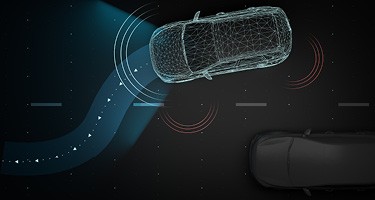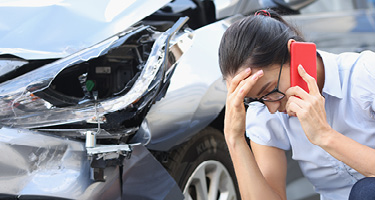Seeking medical attention after being injured in a car accident is essential for your health and a personal injury claim. Aches and pains could be indications of a severe car accident injury. Prompt medical care can reduce the risk of your condition worsening.
Immediate medical attention also increases the chance that you receive maximum compensation for an accident claim. Delays in medical care give insurance companies a reason to argue that the motor vehicle accident did not cause your injuries.
However, medical care is expensive.
Medical bills from a car accident can include:
- Ambulance services
- Emergency room fees
- X-rays, blood tests, MRIs, and other diagnostic tests
- Radiology and lab bills
- Physician’s bills
- Hospital costs
- Therapy bills
- Medication and medical equipment
- In-home health care and personal care costs
Even a minor injury can result in thousands of dollars in medical bills. A brain injury or spinal cord injury could result in hundreds of thousands of dollars in medical bills. Who pays for your medical care after a car accident?
Paying for Medical Expenses After a Car Accident
Dealing with the medical costs that result from a car accident can be overwhelming. If you did not cause the collision, the other driver or another at-fault party could be responsible for paying your medical bills.
However, you must first prove that the person caused the accident and either settle the personal injury claim or take the matter to court. If the party responsible for the car accident does not pay for your medical bills until after the case settles, what happens until then?
There are several ways that you can handle medical bills after a car accident.
Personal Injury Protection (PIP) Coverage
New York requires that all drivers carry no-fault insurance or PIP coverage in the amount of $50,000. PIP insurance pays medical bills and other damages, regardless of who caused the automobile accident. PIP coverage applies to you and the passengers in your vehicle.
Therefore, regardless of who caused the car crash, you file a claim with your automobile insurance carrier for medical bills. Under a general PIP policy, your insurance company pays for reasonable and necessary medical expenses related to the car accident up to the policy limits.
However, if you were intoxicated at the time of the crash or impaired by drugs, your PIP coverage might not apply. There may also be other exclusions for PIP coverage, such as intentionally causing a car accident or committing a felony at the time of the accident.
Health Insurance Coverage
If you exhaust your PIP coverage for medical bills, you may also use your health insurance to pay for car accident medical care. You may have co-pays, and your health insurance might not cover all procedures or treatment.
Suppose you file a personal injury claim and recover compensation for your damages. In that case, your health insurance company will demand repayment of any money it paid for treatment related to the car accident. The claim is called a subrogation claim, and it is a lien against any settlement you receive related to the car accident.
Your car accident lawyer might be able to negotiate a lower payment for the subrogation claim, depending on the circumstances of your case.
Medical Liens
If you do not have health insurance coverage, your medical providers might be willing to continue treatment under a medical lien. A medical lien is a document you sign promising to pay the medical bills from any proceeds you receive from a car accident settlement. Your attorney is legally required to pay the medical liens from the settlement proceeds before you receive any money for your damages.
Filing a Personal Injury Lawsuit
Even though New York is a no-fault insurance state, car accident victims might have a claim against the other driver. The other driver must have caused the accident, and your injuries must meet the serious injury threshold before you can recover compensation from the other driver.
New York State Insurance Code §5102(d) defines serious injury as:
- Loss of a fetus
- Death
- Permanent loss of a body member, organ, system, or function
- Dismemberment
- Fracture
- Significant disfigurement
There may be other cases that meet the serious injury threshold. Cases involving significant limitations of body functions or organs can sometimes rise to the serious injury threshold level. Also, injuries that seriously restrict the person’s ability to perform daily activities could meet the serious injury threshold.
It can be challenging to determine whether an injury meets the serious injury threshold if it does not involve one of the first six conditions. It is advisable to consult with a car accident lawyer after a car accident to discuss your legal rights and your options for recovering compensation for medical bills, loss of income, and other damages.
About the Author: Craig Rosenbaum is a personal injury lawyer in New York City and the co-founder of Rosenbaum & Rosenbaum, PC. His office handles all personal injury matters and is located on Wall Street in Lower Manhattan, NY.
































